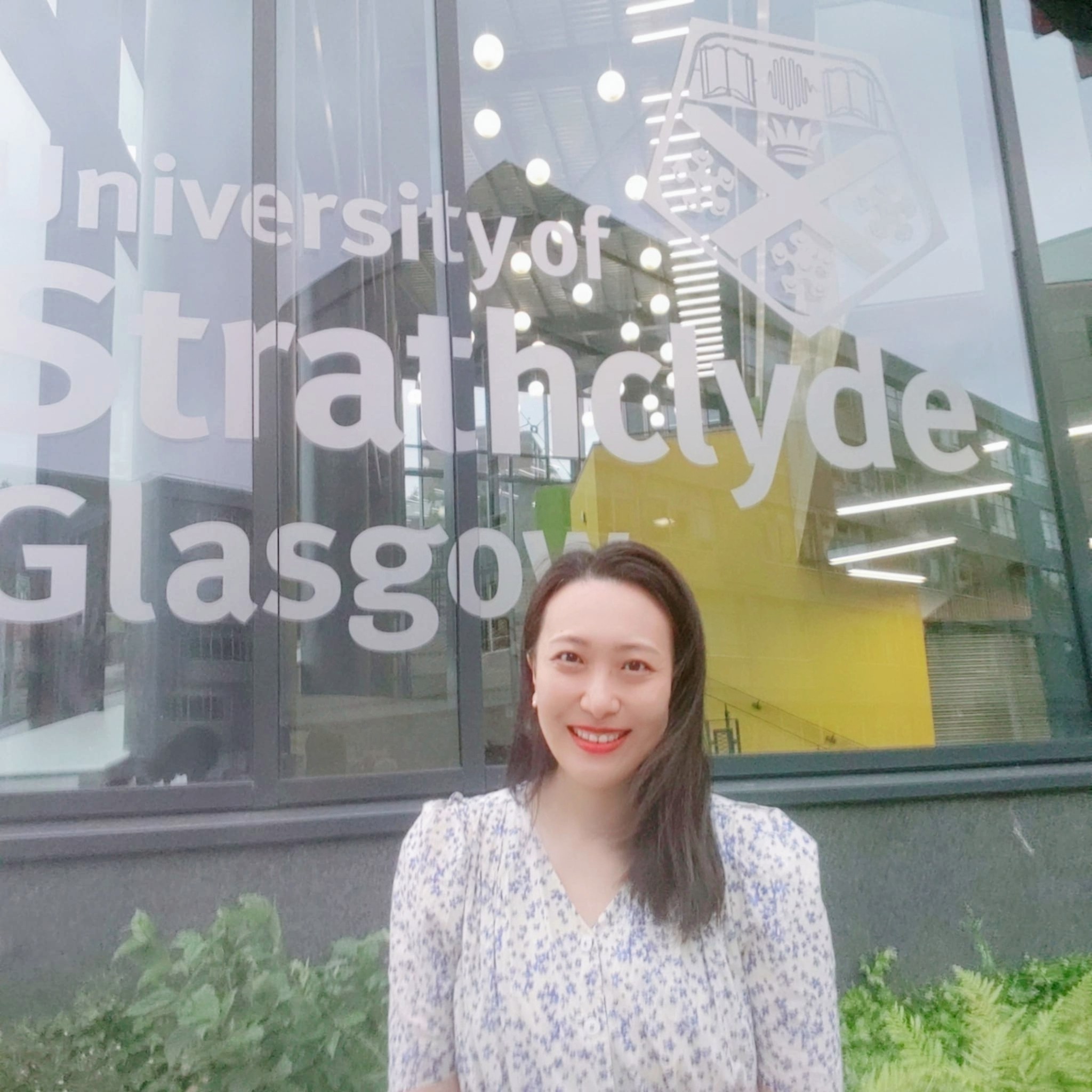MSc Sustainable Finance: prepare to succeed
By Hyun Young Tae - Posted on 8 August 2024
Hyun-Young Tae began the MSc Sustainable Finance programme with a mission to contribute meaningfully to the financial sector’s shift towards sustainability.
I identified Europe and specifically the UK region as having the most active initiatives in sustainable finance so were ideal locations for study. Also I had good memories of the UK, where I lived for a while when I was young. These points made me begin searching for sustainable finance courses in the UK and I discovered the programme at Strathclyde.
The decision to pursue the MSc Sustainable Finance at Strathclyde was driven by my passion for sustainable investing and Strathclyde’s unique curriculum, which blends Environmental, Social, and Governance (ESG) factors with financial principles, stood out to me. I applied and was accepted, allowing me to pursue my interest in this emerging area of finance.
I have wanted to deepen my knowledge in asset management and take some time away from work to focus solely on my studies. When I was a newcomer to the workforce along time ago, I was able to maintain a work-life balance and dedicate time to learning beyond my job responsibilities, both during work hours and in my personal time. However, as I gained more experience and took on more responsibilities, I found it increasingly difficult to do so.
In recent years, as New Norm Sustainable, ESG finance has become a trend, I noticed a growing interest and practice from clients and a significant difference in the initiatives between Asia, Europe, Americas, and BRICs other emerging country. There has been an increase in research materials, seminar requests, and regulatory demands, highlighting the need for enhanced capabilities among client consultant, fund managers and sustainability research personnel. This piqued my curiosity, leading me to seek further knowledge in this field.
Programme Highlights
The subjects covered throughout the semester, starting with the development of mathematical and quantitative knowledge in finance research, various elective subjects in finance, such as finance theory, and international finance, are presented and must be completed for credit. Since I had a clear investment focus, I primarily chose investment-related courses. However, if you are interested in quantitative analysis, accounting or banking, you could take elective courses if they are offered. There is also a research professor specialising in fintech finance, and there are integrated classes offering opportunities to learn machine learning, AI, and fintech finance to be integrated sustainable finance.
Personally, I enjoyed Quantitative Methods for Finance, Portfolio Management and Empirical Research. The business school has a computer lab with a Bloomberg terminal, which I frequently used - it was convenient to access training sessions or practice using the ESG Analytics tool and various other commander screens whenever I had time.
I also enjoyed the Applications of Sustainable Finance class. Throughout the semester, we had the opportunity to hear guest lectures and engage in actual industry case study discussions. Leaders from fund management, consulting firms, and banks, including PWC, NatWest, Pollination, and Stewart Investors, who are active in sustainable finance, were invited to give detailed classes on their work and the current state of the industry. At the end, the professor organised a seminar featuring the former CFO of company Unilever, allowing many students to gain valuable insights.
Teaching and Learning Experience in Strathclyde Business School
The professors at the business school are always open to helping.
Since I was returning to studying and student life following a lengthy break - and I was not familiar with British-style research or writing papers for academic genre - I took language classes at the university. These sessions are available pre-session or during the semester, so if you want to improve your linguistic skills, I recommend contacting the English Language Centre to participate. The tutors were great and I was impressed by their professionalism, thoughtfulness, and willingness to help.
Life in Glasgow
Glasgow is environmentally clean, and you can enjoy city life and shopping in the downtown area without much inconvenience. Transport is convenient with nearby buses, trains, and flight facilities, making it easy to travel within the UK and overseas. I often used the university's sports centre and really liked the gym equipment, dance and yoga studio.
Being a student in Glasgow is an enriching experience. The city is vibrant, diverse, and welcoming. There are numerous cultural and social activities, and the support services for student activities at the university are excellent.
I enjoy art, music, and nature, so when I got stressed from studying, I visited Kelvingrove Park, the art gallery GOMA, and Glasgow Botanic Gardens to relax. Glasgow is a city where famous global musicians often tour during their world and UK tours, so I had a great time attending concerts. There is also a place in the city centre where you can listen to band music in a pub. If you enjoy music, I highly recommend you take advantage of this!!
Future Plans
Upon completing the MSc, I aim to pursue a career in sustainable finance, focusing on ESG investment strategies. I believe the skills and knowledge gained from this programme will enable me to contribute meaningfully to the financial sector’s shift towards sustainability.
My current plan is to return to the asset management industry and get back to work. I aim for a career that involves general investment management and client consulting in the investment decision-making of institutional investors, as well as fulfilling my duty of good faith to client and partners. I intend to apply and integrate the sustainable finance knowledge I have studied to work with groups or partners.
Advice for Prospective Students
My advice to prospective students is: try to embrace the learning curve (one of my favourite phrases: No Pain, No Gain) as a one year MSc study programme will test your tolerance and resilience. The initial stages might be tough, but as you immerse yourself in the coursework, you'll grow and adapt.
This programme not only enhances your professional finance skills but also equips you with the knowledge to make a positive impact on the world. Sustainable finance requires understanding complex systems and thinking holistically about financial and environmental impacts: take the time to feel and think about the concepts and sustainability applications. This reflective approach will deepen your understanding and make your learning more meaningful.
We know that no one knows exactly how things will turn out when it starts. It's natural that it won't be perfect from the beginning, and predicting the exact outcome is impossible. However, as you learn and practice, your goals and learning outcomes will become increasingly clear. Actively participate in classes, discussions, and projects. The more you engage, the more you'll get out of the programme. Use this as an opportunity to grow personally and professionally. Overcoming challenges in the masters programme will prepare you for the demanding nature of careers in sustainable finance.










